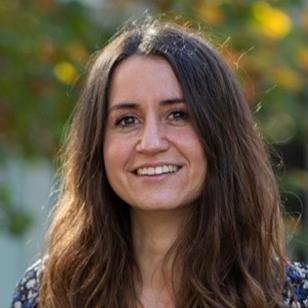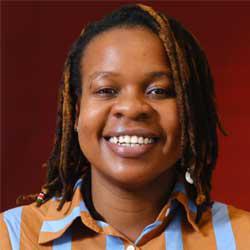
Channeling youth expertise and influence for a world without nuclear weapons
“Future generations are counting on you to help usher in a world of peace.
In the name of our common future — in the name of humanity — let’s spare no effort to rid the world of nuclear weapons, once and for all.”
- UN Secretary General’s message for the virtual launch of the Youth Leader Fund for a World Without Nuclear Weapon
According to the Stockholm International Peace Research Institute (SIPRI), as of 2023, the world's nuclear-armed states collectively possess more than 12,500 nuclear warheads – of which about 30 per cent are deployed, escalating geopolitical tensions and violence across the globe. However, nuclear disarmament has been one of the top priorities of the UN since its establishment. The first ever resolution of the UN General Assembly for example established a dedicated commission to deal with the discovery of the atomic bomb, which already at that time was considered as one of the biggest threats to humankind.
Simultaneously, the world is now witnessing the largest generation of young people in history, totaling 1.2 billion individuals aged 15-24. This demographic reality positions young people as important actors in nuclear disarmament. As mentioned in the New Agenda for Peace, youth are essential to identifying new solutions that will secure the breakthroughs that our world urgently needs. The importance of ensuring their meaningful engagement in peace and security processes is also reaffirmed by the UN General Assembly through the biennial resolution entitled Youth, disarmament, non-proliferation and arms control, unanimously adopted in 2019 and 2021.
In a world fraught with such threats, it is paramount to listen to the voices of young people. Recognizing their agency and potential as catalysts for change, empowering them with the essential skills to navigate these complexities becomes an imperative task. This is a crucial moment in history where the voices and actions of youth can shape the present and future of global peace and security. However, changing the world needs more than a vision. It needs preparation in terms of knowledge, skills and attitudes.
The Youth Leader Fund for a World Without Nuclear Weapons training programme
In 2023 the United Nations Office for Disarmament Affairs (UNODA) launched the first phase of the Youth Leader Fund for a World Without Nuclear Weapons training programme (YLF), targeting 100 diverse young people, motivated to use their talents to promote change for a more peaceful and secure world. The blended training programme covers a foundational self-paced training course on key nuclear disarmament and non-proliferation issues, virtual group discussions, live webinars with disarmament experts as well as skills building workshops.
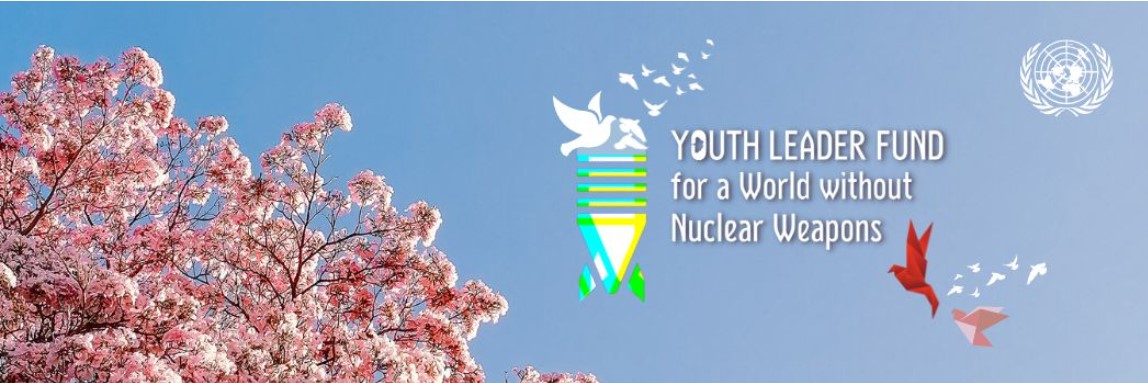
The United Nations System Staff College (UNSSC) supported the YLF programme by facilitating the delivery of the skills building workshops. To drive meaningful change, youth participants requested learning tailored to strengthening their skills in leadership, negotiation & advocacy and future thinking.
Each session was co-delivered by UNSSC learning specialists - covering key theoretical components of each topic - alongside external young experts. This collaborative approach ensured that youth perspectives and real-life experiences were both valued and strategically integrated into the sessions.

“You learn by doing, so start today.”
The leadership workshop was co-led with Wevyn Muganda (Deputy CEO at Africa Asante Foundation). As a young Kenyan woman, Wevyn started her leadership journey at the age of 22, by hosting community dialogues on issues plaguing her community, such as increasing rates of school dropout rates, unemployment, poverty and overall violence. Her daily activism led to her becoming a recognized global advocate for young people’s right to participate in decision-making and peacebuilding processes.
Drawing upon her own experience, Wevyn provided participants with tangible approaches for effective youth leadership:
- stay teachable, by attending learning opportunities to strengthen leadership skills;
- build relationships, by connecting with youth activists sharing your own battles;
- mobilize for collective action, by engaging with stakeholders and communities and influencing them to act.

“Don’t be afraid. Get out there. You belong.”
Yasmine Ouirhrane (Founder and Director of We Belong), co-led the workshop on negotiation, with a focus on “securing a seat at the table”. Yasmine, an advocate for minorities rights, started her advocacy work at the age of 16 within disadvantaged neighborhoods in France, widely affected by different forms of violence and inequality. In 2019 she was appointed as Young European of the Year for her commitment to equal rights for women and equal participation opportunities for migrants in Europe.
During the workshop, she outlined different forms of advocacy strategies - both online and offline, through alternative methods such as collecting anonymous testimonies, using art and culture and networking with local leaders. In particular, she provided practical tips on how to deliver effective messages to decision makers:
- define the issue – by articulating the problem, try to address and outline why policy change is necessary;
- highlight the key benefits– by focusing on the positive outcomes of implementing suggested policy change;
- provide evidence through data – by including research findings, testimonials and existing successful examples.
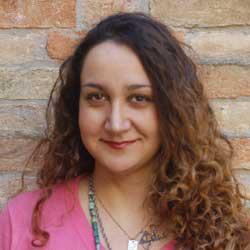
“Choose the future you want to create.”
The last skill-building workshop was led by Shadi Rouhshahbaz - an Iranian peacebuilder and researcher working on youth, gender and their connections in peace and security processes. She is currently pursuing a PhD at the University of Melbourne and a Research Fellowship at Deakin University, working on intergenerational leadership and future literacy and foresight.
During the last workshop, she focused on introducing foresight and futures thinking which is the exploration of the future to inform present-day decisions and actions. In a few words, foresight helps us anticipate and prepare for the future to make better-informed choices.
Next, Shadi, tailoring the approach to the topic of nuclear disarmament, engaged with youth participants in an interactive futures triangle exercise, where they were encouraged to apply this conceptual framework to understand the factors influencing desired future developments, specifically reflecting upon
- the pushes of the present - trends or drivers that drive us towards the future;
- weights of the past - underlying forces that shape the future and;
- pulls of the future - desired outcomes or goals we want to achieve in the future, in this case a future without nuclear weapons).
“It was very encouraging to hear from different youth speakers and learn from their own experiences. Their messaging and advice were very authentic " – from Evaluation Forms
Looking ahead: Our common future
A selected group of 50 participants will travel to Japan, where they will have the opportunity to visit significant landmarks in Hiroshima and Nagasaki. During their visit, they will engage directly with Hibakusha, the surviving victims of the atomic bombings, and collaborate with members of local youth groups who advocate for a world free of nuclear weapons.
The culmination of the study tour will be a youth-led conference, envisioned and organized by the programme participants themselves. This conference will serve as a platform for dialogue and collaboration, bringing together international and local youth participants to share insights, exchange ideas, and explore innovative approaches to nuclear disarmament.
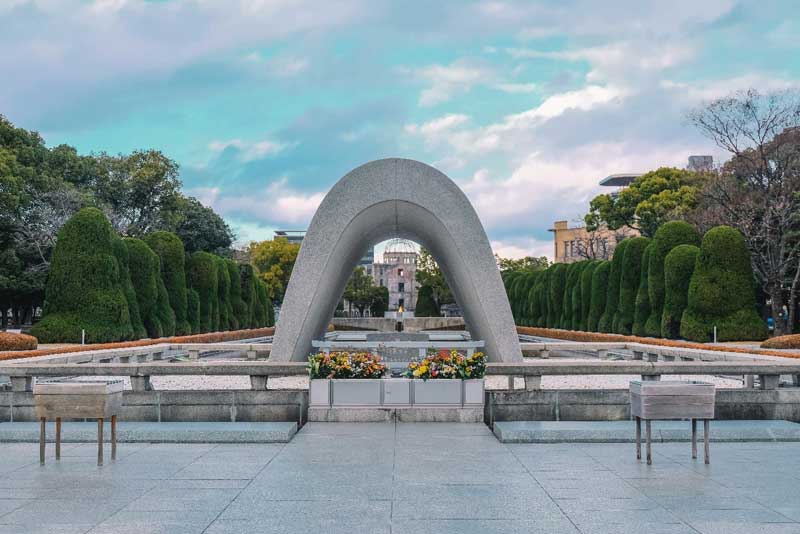
The Youth Leader Fund for a World without Nuclear Weapons training programme underscores the transformative power of youth empowerment and collective action in advancing global peace and security. By investing in the potential of young leaders and providing them with the necessary tools and opportunities, we can build a world in which nuclear disarmament is not just a distant dream but a tangible reality.
Together, let us spare no effort in pursuing a world free of the threat of nuclear weapons, for the sake of our common future and generations to come.
